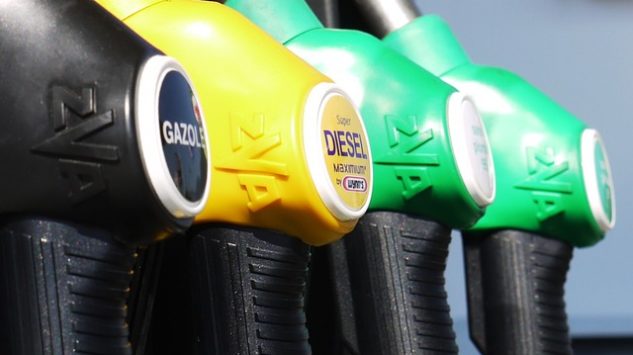Issue Briefs

Thanks to Fracking, No Panic in the US After The Attacks on Saudi Oil
September 18, 2019
By Paolo Von Schirach
WASHINGTON – The most astonishing consequence of the unprecedented, devastating attack on Saudi Arabia which crippled the Kingdom’s oil production and refining facilities is what did not happen, especially in the USA.
There was no panic in the US or worldwide; no skyrocketing, out of control oil prices. Yes, crude prices went up, significantly; but not in a dramatic way, if you consider that the supplies of Saudi Arabia, the leading world exporter, (along with Russia), have just been cut down by 50%! That 50% represents 5% of total world supply. In an environment where strong demand matched tight supply, this sudden shortfall would be a disaster, especially for the US, along with China the leading oil consumer. But right now world oil supplies are not stretched, notwithstanding steady demand, thanks to the US fracking revolution which added millions of barrels of oil a day to global energy markets. More on this in a moment.
Surprise but no shock
Obviously, world markets took this unexpected and sadly successful attack against well defended (we all thought) and vitally important Saudi oil facilities quite seriously. But again, there was no panic; no stock market crazy gyrations. In contrast, you can rest assured that if the very same attack on Saudi Arabia had taken place 10 or 15 years ago, the reaction would have been chaos and mayhem –especially in Washington, DC and on Wall Street. Similar shortfalls caused the oil crises of 1973-74 and 1979.
What happened in the last 15 years?
So, what is the difference between now and then? The difference is the US fracking revolution. The almost unthinkable surge in US oil and gas production made possible by the adoption of fracking technologies by many US energy companies , (a successful combination of hydraulic fracturing and horizontal drilling), which began 10 to 15 years ago has given the United States millions of additional oil barrels and, as a consequence, also a much higher degree of energy self-sufficiency. Not total self-sufficiency, mind you, but close. Heavy reliance on distant (and it turns out not so reliable) oil suppliers was drastically diminished along with massive increases in domestic oil production.
The broader impact of the US fracking revolution
This gigantic increase in domestic oil and gas production made possible by extracting oil and gas from shale formations, coupled with increased oil imports from Canada, a friendly neighbor, have created a new scenario of quasi “Hemispheric Energy Independence”. In simple terms, North America, (Canada, USA and Mexico combined), can soon become energy self-sufficient.
Let’s be clear, we are not there yet. But we are almost there. The US still imports some OPEC oil, as well as crude from other regions of the world, but most of the oil we consume now in America is either domestically produced or imported from reliable neighbors.
Relaxed atmosphere
Hence the relatively relaxed atmosphere both in Washington and on Wall Street, when it comes to confidence in ensuring continuity of energy supplies to industry and consumers in the aftermath of the attack on Saudi oil facilities.
Notwithstanding the shockingly bad news of the brazen attacks that knocked down half of Saudi Arabia’s oil production and refining facilities, with the ensuing cuts in global supplies, there is no panic in America. This is an incredibly important achievement. We owe this to a multitude of small, medium and some large fracking companies that are behind this American energy revolution.
Global benefits
And the fracking revolution benefits the rest of the world as well. Since America now imports much less than it used to, there is now much more oil in the global market place available to all other importers. Abundant supply means lower energy prices for all, ample reserves, and (almost) guaranteed deliveries to all importers. Thanks to fracking and massively increased US oil production, even an unprecedented, catastrophic event like the attack on Saudi oil facilities can be handled without resorting to extraordinary measures such as price controls, rationing, etc.
A private sector effort
Where am I going with all this? Very simple. Fracking was not a US government program. It is all about old fashioned Yankee ingenuity. The US private sector, often small energy entrepreneurs, largely unhindered by suffocating state or federal rules, had the freedom to invest in drilling in shale –an endeavor what at the beginning seemed to most experts a perfectly crazy idea destined to failure.
Well, the seasoned experts were wrong. After a few years of trial and error, the daring energy entrepreneurs were proven right, and America now –thanks to fracking—is in the midst of an incredible “Energy Renaissance”. This huge additional domestic production, in this moment of international bewilderment caused by the brazen attacks on Saudi oil facilities, provides precious support and reassurance to both the US economy and US national security.
Broader lesson: encourage free enterprise
So, here is the broader lesson. As a Nation, let us do all we can to encourage more innovation and entrepreneurship –in all sectors. Do not place roadblocks on the path of those who seek to create new products, new systems and new solutions. And I am not just talking about energy here. I am talking about all economic sectors.
Sure, all economic activities have to be conducted within the boundaries of the law, while they have to comply with all necessary safety and public health standards. These are the common sense rules of a modern, civilized society. But, once reassured that there is genuine compliance with the basic norms of our nation, let people be free to do what they want to do.
In the case of fracking we see the enormous economic and now national security benefits brought about by daring spirits, ingenuity and enterprise. About other economic sectors, God only knows what new benefits commercially viable innovation may bring to us.
The views and opinions expressed in this issue brief are those of the author.
 |
Paolo von Schirach is President of the Global Policy Institute www.globalpi.org and Chair of Political Science and International Relations at Bay Atlantic University www.bau.edu He is also the Editor of the Schirach Report www.schirachreport.com |